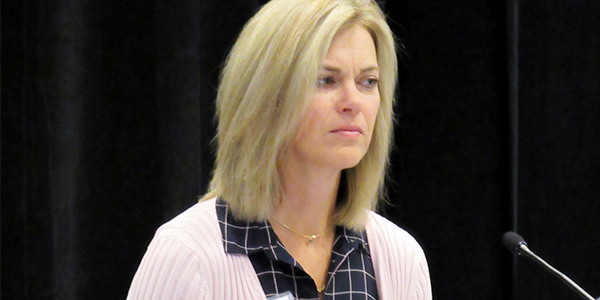MISO’s Advisory Committee members this week adopted the first set of standards for creating and joining stakeholder sectors.
During a virtual meeting Wednesday, committee members adopted new rules that make MISO or its Board of Directors the mediator and final arbiter when a new entity is refused entry to a sector.
“This will effectively eliminate a sector’s ability to ‘veto’ an organization’s request to join that sector,” the AC said.
The rules also mean that sectors must establish their criteria for joining and post them on the public MISO website.
“Sectors are encouraged to be as inclusive as possible, which ideally ensures a new entity can find a fit within the existing set of sectors except in the rarest of circumstances,” the AC wrote.
The committee this spring created a miscellaneous Affiliate sector to serve as a catch-all for new, hard-to-pin-down members. The move prompted the board to charge the committee with making rules on how new members join sectors and how new sectors are created. (See Board OKs 11th MISO Sector, Orders Redesign.)
In its new rules, the AC called new sector creation a “last resort” and said that a group of organizations wishing to form a new sector must make their case in writing and boast documented participation in MISO’s stakeholder committees. While the committee can recommend a new sector’s creation, the board will have the final say.
The AC also said that if a band of stakeholders wants to create a new sector, it should be at least 10 organizations strong. If not, the organizations may have to join the Affiliate sector.
North Dakota Public Service Commissioner Julie Fedorchak said the 10-organization threshold seems a little high, considering that most stakeholders would probably find a home in MISO’s existing 11 sectors.
“It seems that having that minimum threshold there is a little restricting,” Fedorchak said. In response, the committee added language giving the board the ability to override the 10-organization requirement.
The AC isn’t finished on sector restructuring. The committee will next discuss divvying up voting rights and how to consolidate like-minded sectors.
Advisory Tx Planning Principles?
Meanwhile, some AC members want to have a say in MISO’s effort to better coordinate its transmission planning processes.
The RTO currently uses separate planning processes to study transmission buildout for its generator interconnection queue and the reliability and economic projects under its annual Transmission Expansion Plan. Several committees are coming up with ideas to better link the planning studies and identify more cost-effective network upgrades that can meet multiple transmission needs. (See MISO Unveils 1st Proposal to Consolidate Tx Planning.)
The AC is debating whether it should draft principles to guide the committees’ discussions. Members of the Municipals Cooperatives and Transmission-Dependent Utilities sector asked the committee to draft coordinated transmission planning principles.
“We’re looking for something more than meeting notes,” DTE Energy’s Nick Griffin said.
Several committee members, however, are opposed to the idea, saying transmission planning isn’t in the committee’s bailiwick.
Environmental and Other Stakeholder Groups sector representative Natalie McIntire, of Clean Grid Alliance, said a set of transmission planning principles would constrain the committees’ work and “confuse the stakeholder process.” She also said it isn’t the AC’s place to shape MISO planning policy.
ITC Holdings’ Cynthia Crane, chair of the Planning Advisory Committee, also said a set of AC principles might muzzle some committee discussions.
Fedorchak said it would be a “pretty heavy lift” for sectors to reach consensus on consolidated planning.
Xcel Energy’s Carolyn Wetterlin, who also chairs MISO’s cost allocation stakeholder group, questioned what purpose the principles would serve and agreed that consensus would be hard to come by.
The AC will again discuss the principles during its August teleconference.





